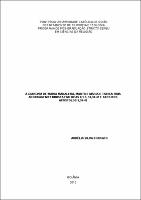| Compartilhamento |


|
Use este identificador para citar ou linkar para este item:
http://tede2.pucgoias.edu.br:8080/handle/tede/835Registro completo de metadados
| Campo DC | Valor | Idioma |
|---|---|---|
| dc.creator | Borsato, Aurelia Silva | - |
| dc.creator.Lattes | http://lattes.cnpq.br/9599418234177085 | por |
| dc.contributor.advisor1 | Reimer, Ivoni Richter | - |
| dc.contributor.advisor1Lattes | http://buscatextual.cnpq.br/buscatextual/visualizacv.do?id=K4700933Y3 | por |
| dc.contributor.referee1 | Silva, Valmor da | - |
| dc.contributor.referee1Lattes | http://buscatextual.cnpq.br/buscatextual/visualizacv.do?id=K4708687A0 | por |
| dc.contributor.referee2 | Correia Júnior, João Luiz | - |
| dc.contributor.referee2Lattes | http://lattes.cnpq.br/3766759231709168 | por |
| dc.date.accessioned | 2016-07-27T13:48:09Z | - |
| dc.date.available | 2013-09-24 | - |
| dc.date.issued | 2012-06-13 | - |
| dc.identifier.citation | BORSATO, Aurelia Silva. A DIAKONIA DE MARIA MADALENA, MARTA E MARIA E TABITA: UMA ABORDAGEM FEMINISTA EM LUCAS 8,1-3, 10,38-42 E ATOS DOS APÓSTOLOS 9,36-43.. 2012. 126 f. Dissertação (Mestrado em Ciências Humanas) - Pontifícia Universidade Católica de Goiás, GOIÂNIA, 2012. | por |
| dc.identifier.uri | http://localhost:8080/tede/handle/tede/835 | - |
| dc.description.resumo | Essa dissertação tem como objetivo pesquisar as várias noções de diakonia praticada por mulheres em algumas passagens dos Evangelhos Sinóticos e no livro dos Atos dos Apóstolos. O serviço, ou a diakonia, de Jesus, não se dirigiu apenas aos fracos, doentes e pobres. Em sua vida terrena, Jesus demonstrou de várias formas como ele entendeu e pregou o amor e o auxílio ao próximo não em sentido figurativo, mas no sentido mais literal e real. É nesse sentido que a diakonia deve ser compreendida como uma noção coletiva para muitos tipos de atividades, serviços e ações e que possuem o fim específico de restaurar, libertar e promover igualdade. Dentro do contexto da diakonia praticada por Jesus as mulheres não foram excluídas e no decorrer da pesquisa procura-se demonstrar que houve reciprocidade na prática da diakonia, de Jesus para as mulheres e destas para Jesus. Por meio da análise qualitativa busca-se através da hermenêutica feminista comprovar duas hipóteses: 1) de que as mulheres mencionadas em Lc 8,1-3, 10,38- 42 serviram a Jesus (diakonoun autó) e este serviço não é restringido ao serviço doméstico. 2) que em At 9,36-43 tem-se exemplo da prática da diakonia e não exercício da caridade. No caso da conceituação da diakonia alguns conceitos padrões desempenharam um papel importante no estudo inicial de palavra, desta forma, algumas informações básicas serão úteis para nos ajudar no estudo do significado da diakonia praticada por mulheres. | por |
| dc.description.abstract | The goal of this dissertation is to research the various notions of diakonia practiced by women in some passages of the Synoptic Gospels and in the book of Acts of the Apostles. The service, or the diakonia, of Jesus, was not directed only to the weak, the sick and the poor. In his earthly life, Jesus demonstrated in various ways as he understood and preached love and help to the next not figuratively, but in the most literal and real sense. It is in this sense that the diakonia must be understood as a collective notion for many types of activites, services and actions, and this must has a specific purpose of restoring, release and promote equality. Within the context of diakonia practiced by Jesus women were not excluded, and this research seeks to demonstrate that there is reciprocity in the practice of diakonia, of Jesus for women and women for Jesus. Through qualitative analysis we pretend by feminist hermeneutics prove two hypothesis: 1) that women mentioned in Lc 8,1-3, 10,38-42 served Jesus (diakonoun autó) and this service is not restricted to the domestic service. 2) At 9,36-43 has example of diakonia and not charitable practice In the case of conceptualization of diakonia some patterns concepts played an important role in the initial study of the word, in this way, some basic information will be useful to help us in the study of the meaning of diakonia practiced by women. | eng |
| dc.description.provenance | Made available in DSpace on 2016-07-27T13:48:09Z (GMT). No. of bitstreams: 1 AURELIA SILVA BORSATO.pdf: 1248133 bytes, checksum: 822d4f05d19a1c29042f7f7f9926ef7f (MD5) Previous issue date: 2012-06-13 | eng |
| dc.format | application/pdf | por |
| dc.thumbnail.url | http://localhost:8080/tede/retrieve/3718/AURELIA%20SILVA%20BORSATO.pdf.jpg | * |
| dc.language | por | por |
| dc.publisher | Pontifícia Universidade Católica de Goiás | por |
| dc.publisher.department | Ciências Humanas | por |
| dc.publisher.country | BR | por |
| dc.publisher.initials | PUC Goiás | por |
| dc.publisher.program | Ciências da Religião | por |
| dc.rights | Acesso Aberto | por |
| dc.subject | diakonia | por |
| dc.subject | mulheres | por |
| dc.subject | Jesus | por |
| dc.subject | Evangelhos | por |
| dc.subject | Atos dos Apóstolos | por |
| dc.subject | hermenêutica feminista | por |
| dc.subject | diakonia | eng |
| dc.subject | women | eng |
| dc.subject | Jesus | eng |
| dc.subject | gospels | eng |
| dc.subject | Acts of the Apostles | eng |
| dc.subject | feminist | eng |
| dc.subject | hermeneutics | eng |
| dc.subject.cnpq | CNPQ::CIENCIAS HUMANAS::TEOLOGIA | por |
| dc.title | A DIAKONIA DE MARIA MADALENA, MARTA E MARIA E TABITA: UMA ABORDAGEM FEMINISTA EM LUCAS 8,1-3, 10,38-42 E ATOS DOS APÓSTOLOS 9,36-43. | por |
| dc.type | Dissertação | por |
| Aparece nas coleções: | Mestrado em Ciências da Religião | |
Arquivos associados a este item:
| Arquivo | Descrição | Tamanho | Formato | |
|---|---|---|---|---|
| AURELIA SILVA BORSATO.pdf | 1,22 MB | Adobe PDF |  Baixar/Abrir Pré-Visualizar |
Os itens no repositório estão protegidos por copyright, com todos os direitos reservados, salvo quando é indicado o contrário.




